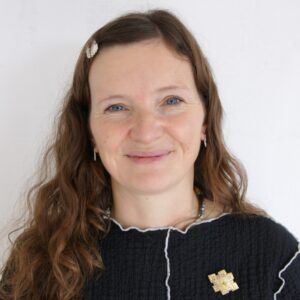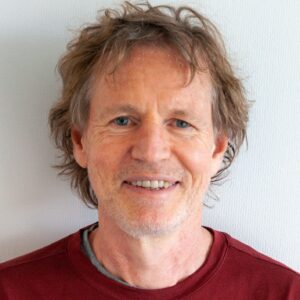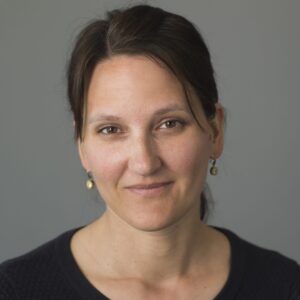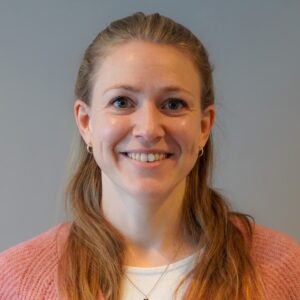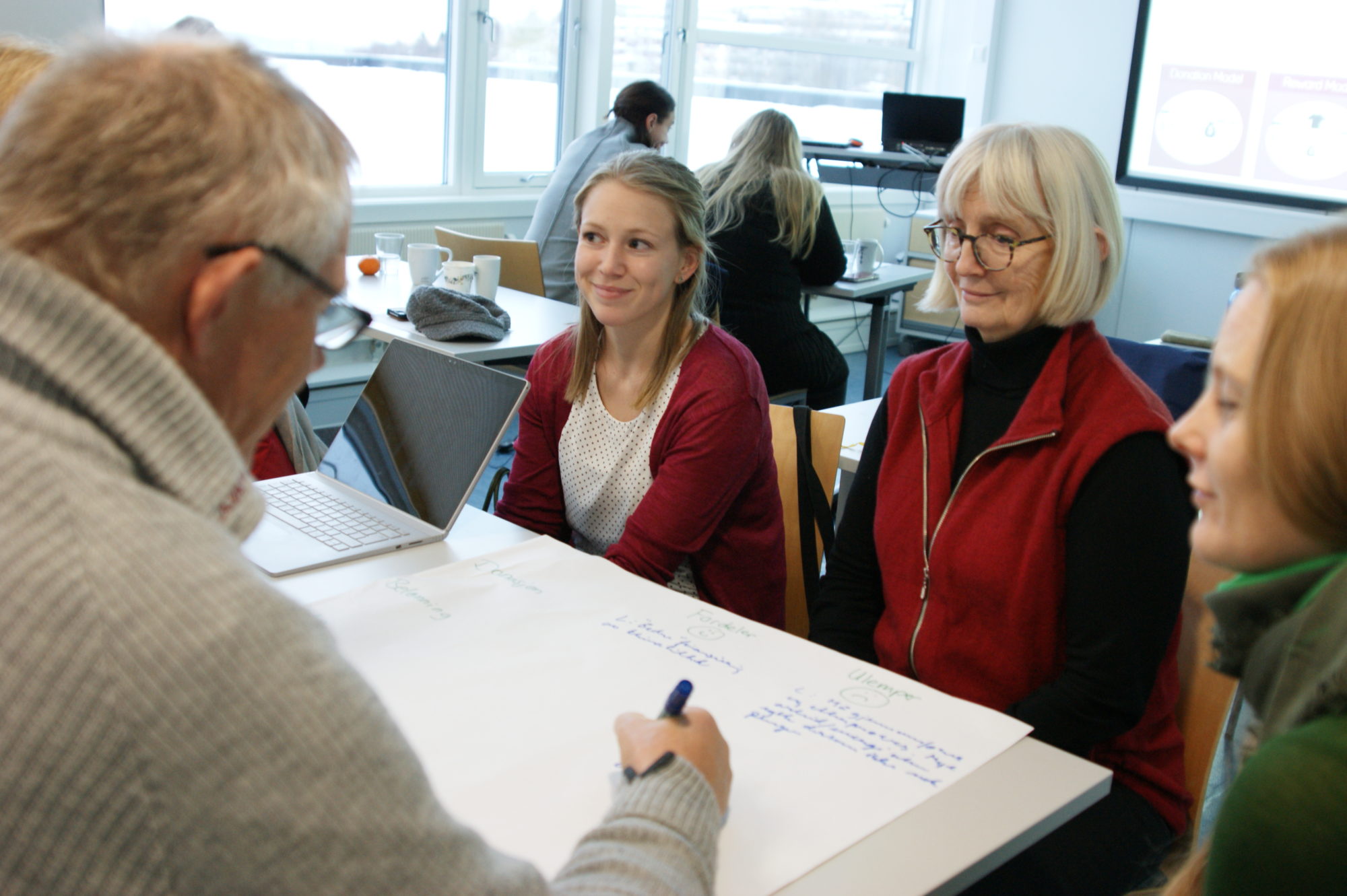Local crowdfunding for a low-emission society: Investigating the concept of local climate crowdfunding for Norway (COOLCROWD)
COOLCROWD: Investigating the concept of local climate crowdfunding for Norway
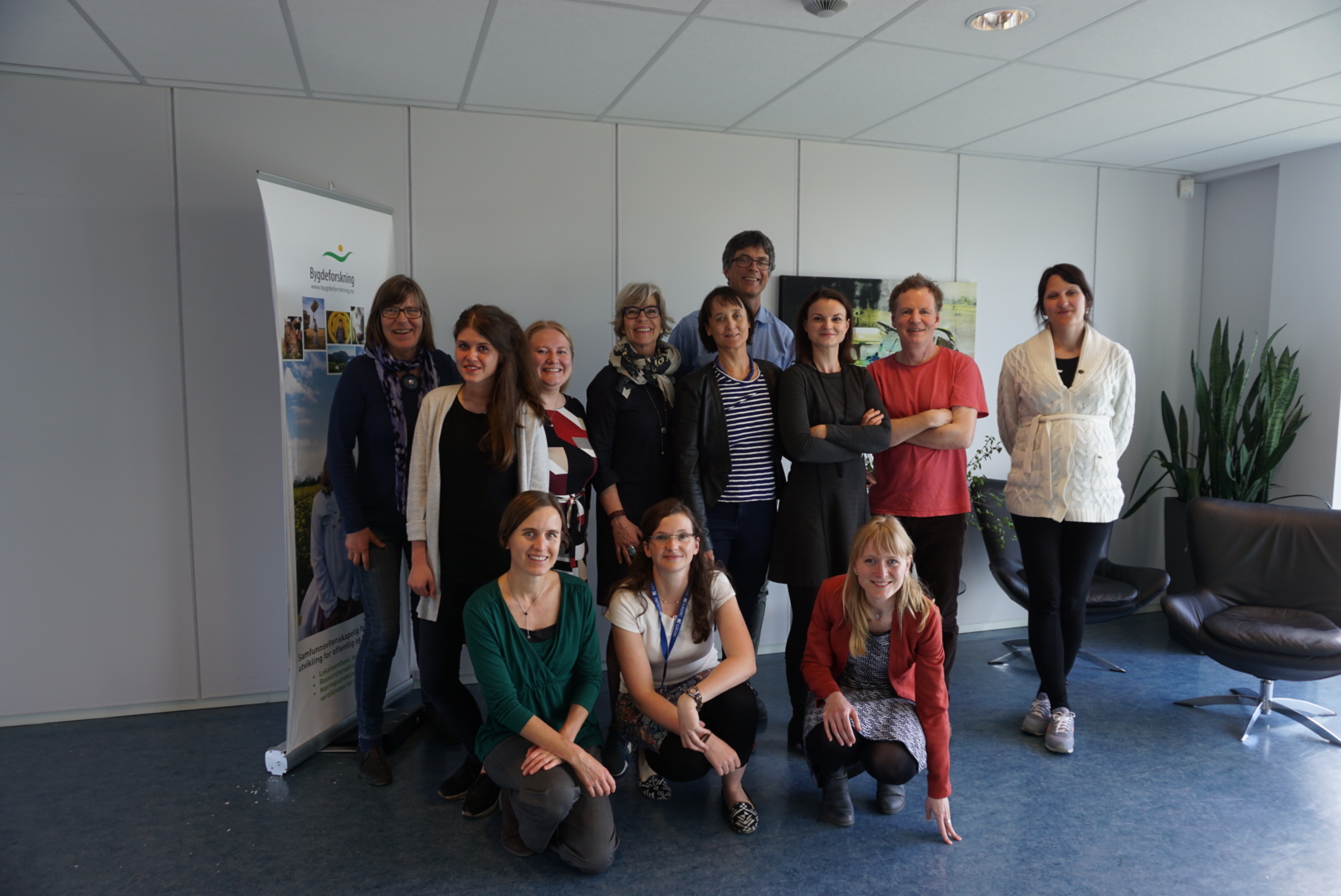
An increasing number of companies now offer carbon offsetting as a means of allowing the public to compensate for their use of fossil fuels. This involves the company contributing to the reduction in greenhouse gases, generally through the purchasing of climate credits. However, this investment is generally made in distant countries, meaning that individuals are unlikely to ever see any positive impacts. In comparison to carbon credits, we contend that local crowdfunding can make climate reduction projects directly visible and relevant to people’s lives – thus providing a greater motivation for investment.
The overall objective of COOLCROWD is to assess the potential for a locally crowdfunded system that enables Norwegian farmers to install climate-friendly technologies on their land and the Norwegian public to invest in local climate mitigation measures. A well designed crowdfunding program will increase the transparency, trust and thus overall delivery potential of GHG reduction schemes as part of a mosaic of different approaches. For this evaluation research, the focus will be on lowering emissions from agriculture through crowdfunding associated with transport carbon emissions. By allowing people to fund investment in and interact with local Norwegian providers of the climate reduction measures, crowdfunding offers a real possibility of making climate reduction measures directly visible and relevant to their lives.
Secondary objectives include:
(i) To review existing crowdfunding approaches and analyse how these might be applied in a Norwegian context
(ii) To explore legal and socio-cultural issues that may facilitate or inhibit the application of a crowdfunding approach to Norway
(iii) To develop alternative business models for a locally crowdfunded climate program
(iv) To explore the acceptability of the crowdfunding approach for Norwegian farmers and investigate optimal design from the perspective of the farm
(v) To establish the likely response of the general public to the concept of locally crowdfunded climate measures and identify optimal measures
(vi) To develop and recommend measures for the implementation of a crowdfunded approach in collaboration with relevant stakeholders
The project has strong stakeholder engagement. Companies that are important potential end-users within the transport sector (e.g., SAS, Trønder Taxi, Fjord1) are integrated in our advisory group to provide feedback necessary to develop an approach that fits existing business models. In addition, important stakeholders from the Nordic crowdfunding environment (Bidra.no, University of Agder’s Center for Entrepreneurship) and the agricultural sector (Norsk Bonde- og Småbrukarlag, Sør Trøndelag Bondelag) will provide experienced knowledge of tool construction.
Work package 1: Project management and coordination
WP 1: Project management and coordination
The work package ensures the overall integration between all WPs, researchers and external stakeholders over the project period. WP 1 is also responsible for the delivery of WP deliverables.
To reduce the climate footprint of the project itself, Coolcrowd implements a carbon experiment where all project members will map their CO2 emissions in the project work. This work is administrated by WP1. This type of information will provide external stakeholders with an estimate of the total CO2 emissions that are produced from research projects to get an estimate of the climate impacts of research projects and their potential for reducing emissions.
Leader: Dr Pia Otte
Work package 2.1: Lessons learned from existing climate crowdfunded projects
Objectives
WP 2.1 undertakes an analysis of existing climate crowdfunding projects to investigate their relevance for the supply (WP3) and demand (WP4) design of a locally crowdfunded climate program in Norway. WP 2.1 will apply a triangulation of methods in form of gathering primary and secondary data. The following activities will be conducted: (1) In-depth interviews with representatives of crowdfunding platforms and green projects mentioned above; (2) Collection and analysis of secondary data including internal company records, company websites, press reports and other published sources. We will apply grounded theory for the data analysis. As a result, WP2.1 will identify the building blocks of existing business models of green crowdfunding and determine the economic success factors and barriers and bottlenecks for a locally crowdfunded climate project that will feed into WPs 2.3 to 5.
Publications
Natalia Mæhle (HVL), Ingeborg A. Kleppe & Natalia Drozdova (NHH), Boukje Huijben (Eindhoven University of Technology) (Desember, 2017). WP2.1 Erfaringer fra eksisterende folkefinansieringsplattformer. En oppsummering av rapporten kan lastes ned her AP2-1_sluttrapport_oppsumering
Organizations: Western Norway University of Applied Sciences,Norwegian School of Economics, Eindhoven University of Technology
Leader: Associate Professor Natalia Mæhle
Work package 2.2: Legal and socio-cultural barriers
Objectives
WP 2.2 undertakes a study on relevant legal and socio-cultural aspects for the design of a locally successful crowdfunded climate program in Norway – collaborating closely with WP2.1. First, any viable climate crowdfunding program must operate within a formal legal framework. The legal analysis includes questions related to, among others: the applicable legislation, the legal status of the different actors under the program, the legal status of the platform including its obligations, due diligence processes for farmers’ projects, the traceability of the money flow. A separate legal issue to be addressed by the WP is how to account for the emission reductions achieved through the measures. This is important for integrating crowdfunding as a financial mechanism into Norwegian climate legislation, both current and forthcoming. The legal assessment primarily consists of an analysis of the Norwegian legislation. It is supported by a review of experiences from the regulatory regime in other countries, such as France and The Netherlands, which have established crowdfunding programs in the agriculture sector. The research applies the general legal doctrine methodology based on domestic legal sources, EEA/EU law when applicable, and comparative law to reflect experiences from foreign legislations.
Second, when it comes to socio-cultural conditions, there are certain aspects of Norwegian culture relevant to developing a successful crowdfunded climate program. The socio-cultural assessment wexplores how Norwegian social and cultural norms may affect the success of the crowdfunding models explored in WP2.1. There are two components to the WP. First, a desk study exploring Norwegian socio-cultural norms. Second, two focus group interviews will be undertaken – one with a group of farmers and the second with potential end-users (contributors).
Publications
Renate Marit Butli Hårstad (Ruralis) (June, 2018). WP 2.2: Socio-cultural factors: Opportunities and challenges for crowdfunding of climate measures in Norwegian agriculture. An executive summary of the report can be found here Executive summary-WP2-2-english
Organizations: University of Oslo, Ruralis
Leaders: Ass. Prof. Catherine Banet and Dr Maja Farstad
Work package 2.3: Developing alternative business models of climate crowdfunding in Norway
WP2.3 will continue through the whole project period. First, based on WP2.1 and WP2.2 it will combine three business model mapping approaches to create preliminary business model scenarios The business model scenarios will also investigate the possibility of using a combined system partly financed via crowdfunding and partly by governmental support similar to Innovation Norway (a member of our Advisory Group). These preliminary scenarios will be presented to farmers in WP3 to get their inputs and test their willingness to adopt different crowdfunding business models. Their inputs will be integrated into the business model scenarios and we will continue the mapping process as discussed above. The resulted business model scenarios will be used in WP4 to evaluate the public’s willingness to participate in the suggested locally crowdfunded climate programs. This process will result in final evaluation and mapping of alternative business model scenarios and suggestions for the most appropriate model in the Norwegian context. We will also consider how the suggested business model of climate crowdfunding can be integrated into existing mobile applications and platforms.
Natalia Drozdova, working on her dissertation entitled ‘Understanding Crowdfunding Projects: Exploratory study of reward-based crowdfunding” will be affiliated with WP2.1 and WP2.3 and take active part in the research activities through the whole project period.
Organizations:Western Norway University of Applied Sciences,Norwegian School of Economics, Eindhoven University of Technology
Leader: Ass. Prof Natalia Mæhle
Work package 3: Engaging Norwegian farmers in crowdfunded climate investments
Objectives
The main objective of the WP is to identify farmers’ interest in participating in a locally crowdfunded climate program, optimal design and preferred technologies or land management changes, and potential socio-cultural and economic issues associated with adopting a publicly visible crowdfunding approach.
For the empirical data collection, the WP closely collaborates with NORSØK and the project “Possibilities for environmental- and climate-friendly dairy production, Norwegian Agriculture”. We conduct individual interviews with six dairy farmers and map technologies and interest in climate-friendly organic and dairy production and emerging expenses with the installation of these technologies. In the interviews, the farmers are presented with developed business models from WP 2.3 and asked about their willingness to adopt these models and their preferences will be analysed for a revised business model that will then feed into WP 5 (Integration). Questions on socio/cultural barriers from WP2.2 will also be asked.
In addition, the project carries out a national survey amongst Norwegian farmers to elicit the climate-friendly technology and practice options that Norwegian farmers perceive as (a) most effective in mitigation climate change; and (b) most feasible to adopt in their current land management practices. We investigate which climate-friendly technology and practice options farmers find appropriate to crowdfund, e.g. more energy efficient technologies that use less fossil fuels and/or those with agronomic improvement (e.g., better use of manure). Such information is essential to support policy programs that aim to incentivize the uptake climate-friendly practices in Norway. Finally, we investigate the effect of these technologies on emission reduction, which is difficult to undertake but we connect to the aforementioned existing project led by NORSØK that assists us in making rough estimates of reduced GHG emissions.
Publications
Pia Piroschka Otte (Ruralis), Alexander Zahl -Thanem (Ruralis), Sissel Hansen (NORSØK) & Natalia Mæhle (HVL) (May 2019). Norwegian farmers’ willingness to participate in a local climate crowdfunding program – results from a national survey (WP3) (R-5/19). The full report can be downloaded here AP3 rapport
Organizations: Ruralis, NORSØK, CSAFE, UWA
Leader: Dr Rob Burton
Work package 4: Enabling the public in local climate crowdfunding
Objectives
This WP focuses on investigating the factors that determine the public’s willingness to pay for a locally crowdfunded climate program. It begins by exploring which types of crowdfunded climate programs the general public would prefer to finance. This entails two dimensions. First of all, it investigates whether the public would be interested in crowdfunding new local climate-related investments in low-emission agriculture or whether they perceive other sectors as more relevant. Secondly, the WP investigates which model/s of crowdfunding are preferred by the general public. As a third part, the WP investigates the price margin, i.e. willingness to pay, for crowdfunding depending on a credible solution configuration of a certain agricultural initiative/scenario, locality and the chosen funding model. A mixed method approach will be applied: Surveys are conducted with a sample of the Norwegian population. In addition, 4 to 6 focus group discussions are undertaken with the public and companies who are interested in applying this concept as part of their climate strategy. Results concerning the socio-cultural barriers of crowdfunding in WP 2.2. feed into this WP while the focus groups are also asked about socio-cultural barriers and the results feed back into WP2.2. The focus group participants are presented with different scenarios of climate crowdfunding. WP4 closely collaborates with WP3.
Organizations: Norwegian Business School (BI Center for GreenGrowth)
Leader: Dr. Per Espen Stoknes/ Sylvia Weddegjerde
Work package 5: Proof of concept integration
Objectives
To establish a “proof of concept” this WP draws together the experiences from all WPs into an integrative model to build the case for developing local crowdfunding of climate change. Outcomes from all work packages will be brought together to establish one, or possibly more, viable business model/s that will suit the farmers’ needs, the public’s needs, fit in with socio-cultural and legal frameworks, and deliver climate reductions from the agricultural sector while improving the local sustainability of agriculture. The business model(s) will then be presented to the advisory board for discussion on how to take the concept further. Integration will take place throughout the project while the final discussions will be conducted during a two-day project workshop at the end of the project.
Organizations: All partners
Leader: Dr Pia Otte
Work package 6: Communication and Dissemination
This WP ensures that key findings from the project are disseminated rapidly to relevant stakeholders and the wider public via a variety of popular media channels including, newspaper, TV and relevant blogs.
Publications:
Lokal folkefinansiering av klimatiltak i norsk landbruk (Pia Otte), pengevirke Nr.4 Cultura Bank 2018 (only in Norwegian) https://www.cultura.no/wp-content/uploads/2018/12/Pengevirke-2018-4-V3.pdf
Vil la folk finansiere klimatiltak på gården (Lisa Sunde, Bondebladet),22.11.2018. https://www.bondebladet.no/article/vil-la-folk-finansiere-klimatiltak-pa-garden/ (in Norwegian)
Natalia Mæhle (HVL) og Ingeborg Kleppe (NHH). Folkefinansiering kan gi penger til grønt skifte. Dagens Næringsliv 09.10.2018. https://www.dn.no/innlegg/folkefinansiering/innlegg-folkefinansiering-kan-gi-penger-til-gront-skifte/2-1-409555 (In Norwegian)
Organizations: Ruralis
Project details
Project period
01/04/2017 - 31/03/2020
Collaboration partners
University of Oslo, Western Norway University of Applied Sciences, Norwegian School of Economics, Norwegian Business School, Norwegian Centre for Organic Agriculture, Technische Universiteit Eindhoven, University of Western Australia, University of Otago
Financing
The Research Council of Norway
News
Scientists Airing New Carbon Offset Scheme
Sustainable aviation was the main theme during this year’s aviation conference. Through the research project Coolcrowd, Ruralis organized…
Can we save the earth thorugh crowdfunding in agriculture?
In order to implement crowdfunding as a feasible solution for climate mitigation in agriculture several obstacles need solving….
Publications
- Article
2025
- Note
2023
- Article
2022
- Article
2021
- Article
2021
- Article
2021
- Report
2021
- Article
2020
- Report
2019
- Report
2019
Contact us
Would you like to get in touch with us?
Fill in the form below and we will answer you as soon as possible.
